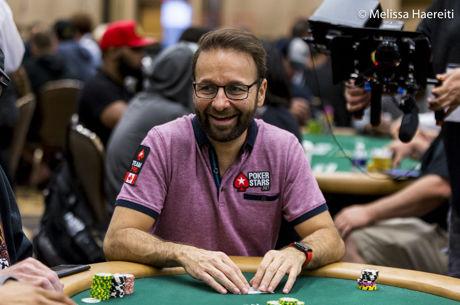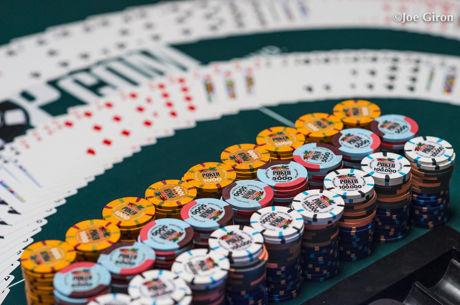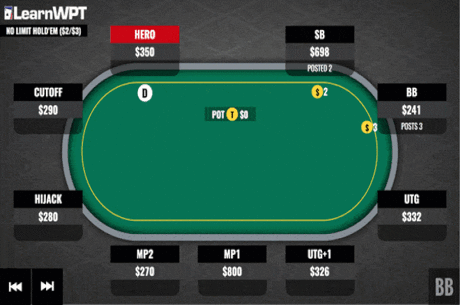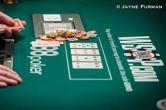Jonathan Little Plays Pocket Aces Cautiously in a Four-Bet Pot
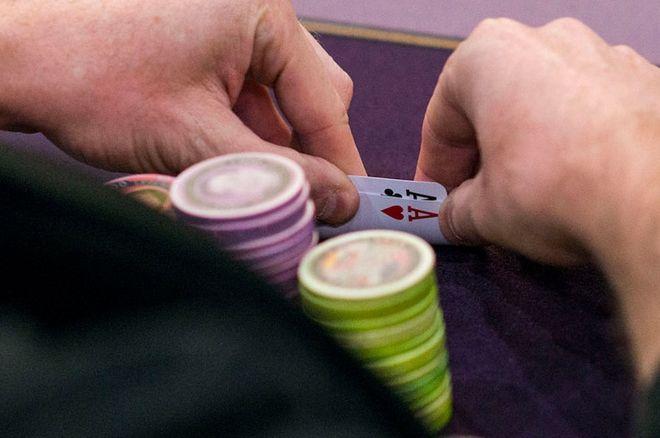
Here's a hand that came early in a $3,000 buy-in World Series of Poker event, a six-handed no-limit hold'em tournament.
In the hand I was dealt A?A? on the button where I had about 38,000 to start. With the blinds 150/300, a tight-aggressive player with only 6,000 to begin min-raised to 600 from under the gun. The next player over in the hijack had about 25,000 and three-bet to 1,600 and it folded to me.
The stack sizes matter here. The three-bettor probably has something decent. He knows that the original raiser could go all in, and so is likely ready to call with his hand.
It was a favorable spot for me with aces, and I four-bet to 3,600. As I talk about in the video below, I could see reraising even more here since the hijack and myself are both so deep. It folded back around, the original raiser folded, and the hijack called, putting the pot at 8,700.
The flop came 10?8?6? and my opponent checked. Given the preflop action, this is actually a safer board than it would seem otherwise, since my opponent shouldn't have hands like 9x7x after three-betting and calling my reraise. Among the hands in his range, only pocket eights or tens would be worrisome. I bet 3,000, he called, and the turn brought the Q?.
My opponent checked again, and I had to decide whether or not to play cautiously from this point. The Q? is actually not a great card for me, and as I explain this becomes a spot where I'm either against a lot of weak made hands that are going to fold if I bet, or premium made hands that have us beat that are never going to fold to another bet.
I checked, the river brought the 5?, and my opponent bet 9,600 into the 14,700 pot. See what I decided to do and listen to how I explain my read of the situation.
This hand is a little like the one we discussed last week �� "When a Full House May Not Be Enough: A Tough River Decision" �� where I also made it to the river with what should typically be a really strong hand, but when looking carefully at these spots they really are close to folds.
As this hand shows, when the board should be excellent for your opponent's range and you have a strong but non-nutted hand, taking the cautious route is often the best course of action. Looking back, if my opponent had check-raised that flop we probably would have gotten all the money in right there, so by not doing so he allowed me to be cautious thereafter and not lose more than I did.
Jonathan Little is a professional poker player and author with over $6,500,000 in live tournament earnings. He writes a weekly educational blog and hosts a podcast at JonathanLittlePoker.com. You can follow him on Twitter @JonathanLittle.
Photo: "Pocket Aces" (adapted), World Poker Tour, CC BY-ND 2.0.

